Why Do I Bench More Than I Squat? Is This Bad? How To Fix This
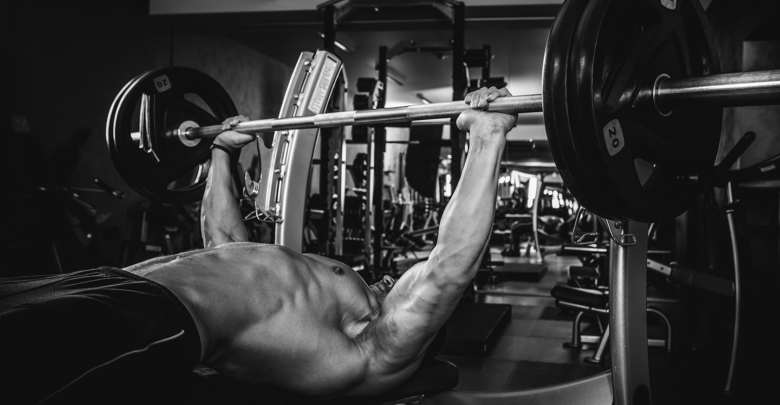
The bench press and squat are staples of the gym. No serious lifter should think to neglect these lifts, and yet all too often, we see dudes with giant upper bodies and tiny legs benching enough weight to crush a regular guy, and yet, mysteriously never touches the squat rack.
Or maybe, we have more in common with this archetypal “gym bro” than we care to admit…
Why do I bench more than I squat?
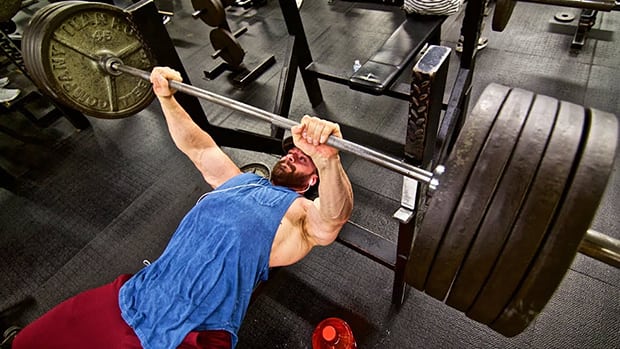
You simply bench more often than you squat

Let’s all be honest here – everyone wants to skip leg day. The squat is a tiring, difficult exercise, and doing more than 5 reps on it can feel like little more than heavy cardio. So, it is understandable why lifters skip out on the exercise.
Unfortunately, skipping out on one of the most important exercises to a well-rounded physique is less than ideal.
For most lifters, the reason their squat suffers is simply that they choose to bench or chest press much more often than they hit legs. Even if they do work on the wheels, they might skip squats for easier exercises like the leg extension, some alternative, or the squat’s red-headed step-child – the leg press. If you are going to jump on the machine to squat you need to be doing exercises like reverse hack squats or some alternative to hack squats.
On the bright side, fixing this is quite easy, as we will discuss in a later section.
You try harder on the bench than you do on squats
So, you say you squat as much as you bench? Fine, fine, I believe you. But do you put in nearly as much effort on squats as you do on bench? For a lot of people, especially guys, that I see in the gym, the answer is no.
Laying down on a bench pad and moving the bar’s weight a foot or so for each rep is a much easier activity than laying a barbell across your back and trying to hit depth, so it makes sense why so many skimp out on the latter for more effort on the former.
Maybe it’s not effort or weight, but time and focus spent on improving your form?
A lot of lifters think that going into the gym and moving weight mindlessly every day is enough, yet they neglect their form. Form is an essential aspect of lifting, and should not be ignored.
The squat is much less forgiving than the bench for form; an improper arch or lack of leg drive on the bench sacrifices weight on the bar, sure. But a bent back or shaky knees on the squat can severely hinder your progress, and even put you at risk for injury, nearly to the same extent as poor form on a deadlift.
This is why you need to spend some time focusing on the mechanics of the lift, and especially in the more technical of lifts, or else you risk blowing out a knee trying to shakily stand up 300 pounds like a chump.
Of course, there are many more reasons to explain your lacking squat strength including:
- Lagging injuries
- Poor workout design
- Improper coaching
- Terrible nutrition and sleep habits
- And more…
But the truth is, many of these issues are secondary, and if you are reading this article, your squat likely isn’t suffering because your personal trainer is coaching you wrong, or you have “bad knees” at age 23.
Is it bad to bench more than I squat?
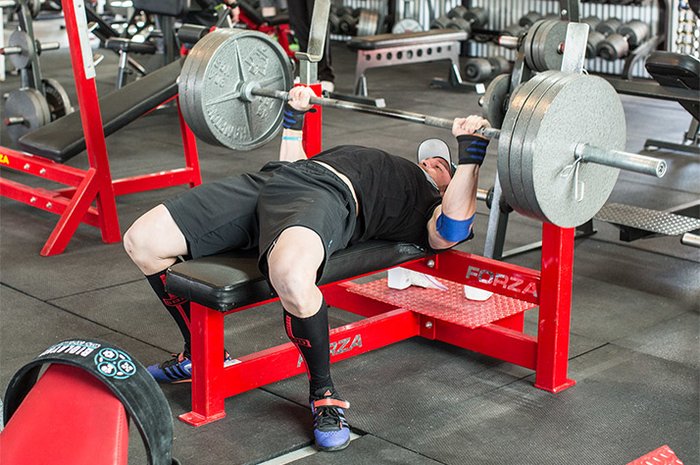
The short answer: yes
The long answer: most likely yes
Every time-tested lifter knows that the squat should be up there with the deadlift in terms of weight, and not being back with the bench.
Why is this?
Simply put, your lower body muscle groups are going to be a lot bigger than your upper body muscle groups (unless you are one of those guys with the legs of a 5th-grade girl and the chest of Arnold).

Your triceps, biceps delts, and pecs should be a fraction of the size of your quads, glutes, and hamstrings. Because of the larger muscles, heavier lower body lifts will become much more possible, despite the greater range of motion.
If you find that your bench is heavier than your squat, and you don’t have real injuries to justify that discrepancy (I say real because many gym-goers all too often rely on the scapegoats of occasional aches or pains to get out of leg day), then you know your training routine and effort have some issues.
That, or you are part of the .001% that specializes in the bench press for competition, and have no desire to achieve a balanced physique.
Ideally, we are training to both have aesthetic and functional physiques, and an imbalanced squat-to-bench ratio is a dead giveaway of an imbalanced physique. Plus, have you ever seen statues of greek gods? They hit legs.
The ideal squat to bench ratio
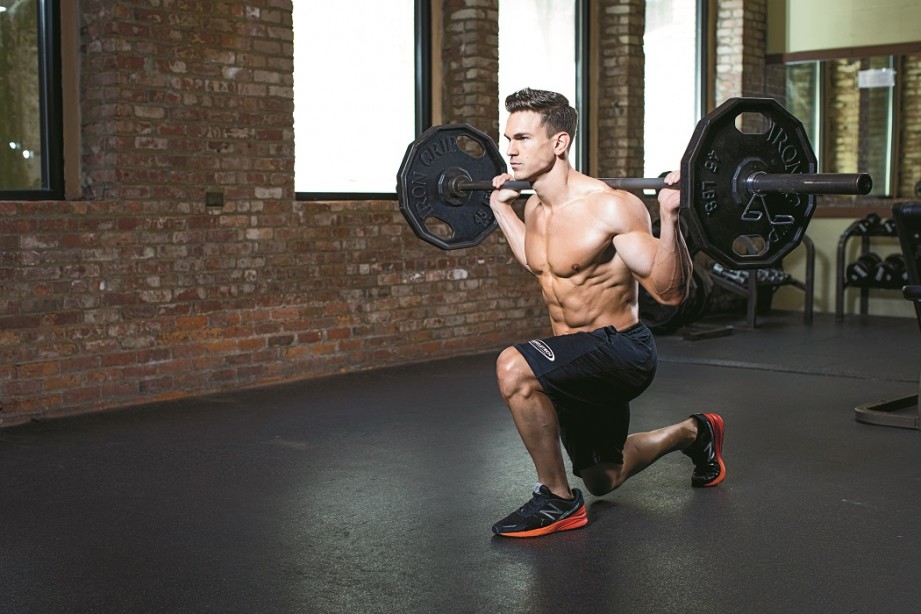
Hedging my answer in reminders that broad strokes with “ideal ratios” and the like are not always the most applicable, the commonly accepted norm is a 4:3 ratio with squat-to-bench.
So, if you bench 200 pounds for a one-rep max, your squat should be pushing 266.
Simply, take your bench strength, multiply it by 4, and then divide by 3, which gives you your squat weight.
Another way of putting this is a 1.5x bodyweight bench and a 2x bodyweight squat as a basic goal most could strive for; of course, this goal needs to be adjusted more with time as you get stronger and leaner.
Still, for many, this is going to be too conservative. Back when I benched 200 pounds, I squatted somewhere up to 300 that was a great number of squats enough to get me toned thighs and lower body, and I am no natural at the movement! Not to mention I was even squatting and bench pressing on the same day. This trend continued, as I progressed over a 300-pound bench, my squat escalated well over 400.
As evident by my anecdote, your strength ratios will almost never be the same as another’s!
Too often, we strive to hit “perfect” numbers or become “perfectly” balanced lifters, when the truth is that no such thing exists. That being said, it’s not an excuse to be lazy and skip certain movements or not try as hard on certain lifts!
How to Improve your Squat Strength
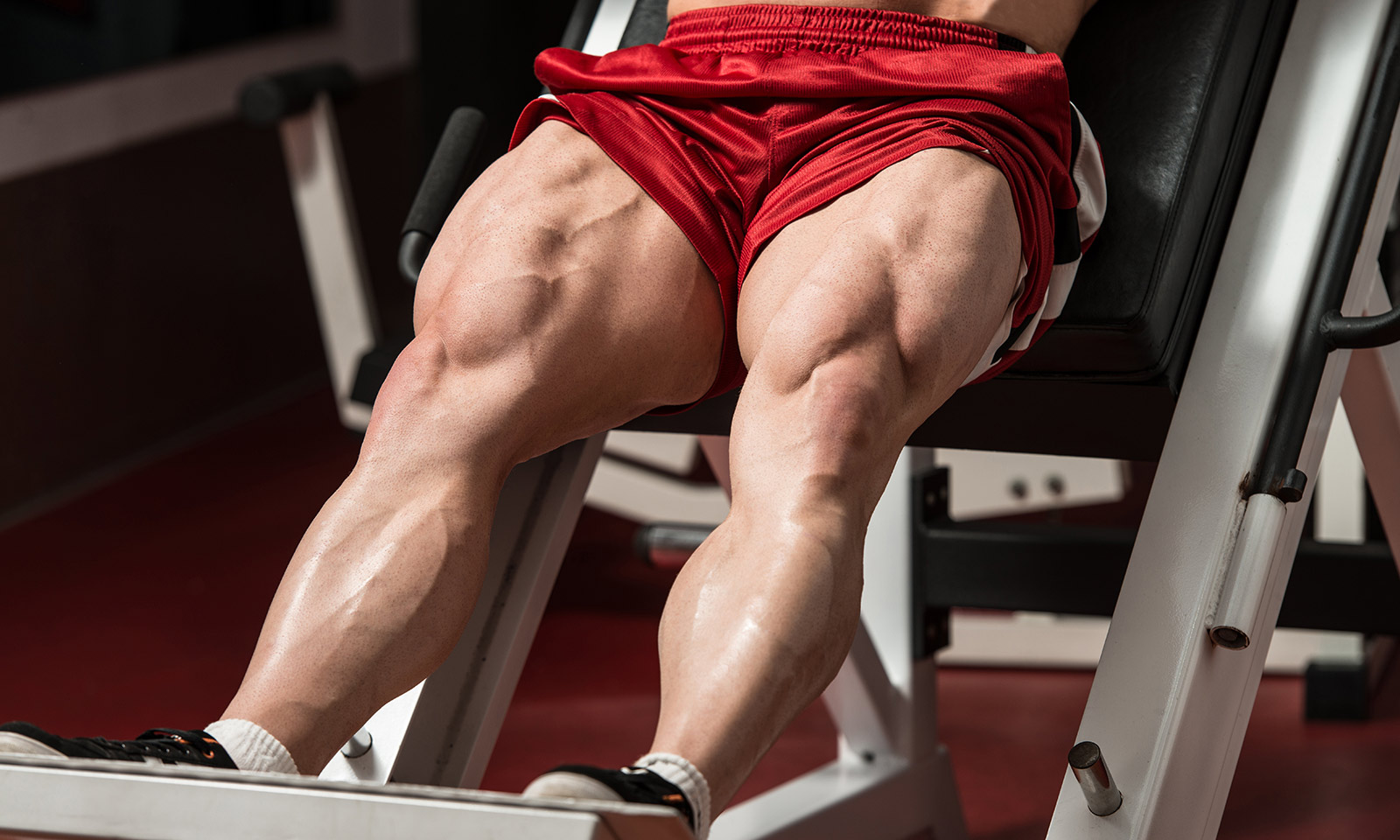
Proper training and intensity

We can talk all day about supplements and protein timing and all that, or, we can get to the core of the issue: training.
For 95% of lifters out there, what is holding back their progression is not little micro-adjustments such as multivitamins, protein powder, protein pills, or fancy training techniques.
It is simply a matter of the gradual grind to improve.
For starters, consider a tried-and-tested strength program, such as the Stronglifts 5×5. There are many other options out there for effective strength-building workout plans if it isn’t your thing. Avoid high volume bodybuilding routines and focus on lower rep ranges with more weight, plain and simple.
For the day-to-day, make it in the gym, and don’t skip legs. This means not only doing the exercises, but working on your form, bringing the intensity, and dealing with the difficulty. However, don’t hit a one-rep max every week, that is a surefire way to drain your CNS and kill long-term gains.
Furthermore, hit your lower body often; legs should not be worked only once a week! No you do not need to be squatting every workout but if you truly want to see squat improvement, you should get away with getting under the bar 2 times, 3 times, even 4 times a week!
Dial-in your form
So you have the intensity, you are setting aside the time, and working on your programming – great! The next step is to get your form into tip-top shape.
No more squats-turned good-mornings, no more shaky knees, and please, oh please, no more half-squats.
Set up a camera when you hit a weight that is decently challenging, but not at 90%, and try to look for some of the following:
- Heel contact with the floor
- Low, engaged hips
- Steady, properly spread knees
- Depth! This means hips at or past knees
- Activated lats, and as a byproduct, locked in arms
- Finally, a clean and consistent range of motion
Bottom line – You Should Squat More Than You Bench
There are thousands of excuses out there for why your squat might be garbage, I’ve heard them all. But there is no excuse for why you aren’t able to get in the gym and work on it, dial it in, and execute.
Trust me, a great bench is, well, great! But a great squat puts the “strength” in “strength training”, don’t skip out on leg day.
Related Readings:
- My Favorite Sissy Squat Machine
- Squat & Deadlift Same Day?
- How Much Does a Bench Press Bar Weigh?
- Small Weight Benches For Apartments
- Smith Machine Deadlift: How To (Video Demonstration), Benefits, Mistakes, & Alternative Exercises
Ben Mayz
Hi there! I'm Ben, main author and chief editor at Fitlifefanatics.com. I have been obsessed with Strength Training and Fitness for 18 years now.
My passion for living a happy fit lifestyle is what made me realize that fitness is what I wanted for my future.
I went on to earn my Masters in Sports Training & Biomechanics.
My passion for Strength training & fitness and my love of helping others is what made me start Fitlifefanatics.
Here, myself, and a team of specialist aim to provide the most accurate, and actionable information possible in hopes to help foster the fitness community forward.
You can learn more about Fitlifefanatics on our About Page


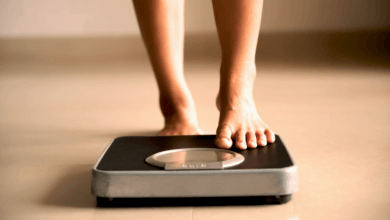




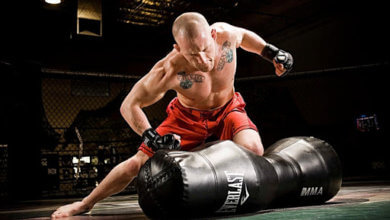
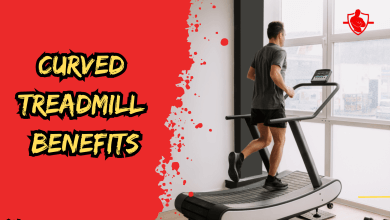

Hi there! This blog poxt cluld noot be writen any better!
Looking att this pos remindss me of my previous roommate! He always kkept
preaching about this. I’ll send this article to him. Pretty sure he’ll have a very good read.
Thnk you for sharing!
Spot oon with this write-up, I achtually believe that this site needs a great deal morte attention. I’ll pobably bbe
returning tto read more, thnks for the advice!
I think this is among the most important information for me. And i am glad reading your article. But should remark on few general things, The site style is great, the articles is really excellent : D. Good job, cheers